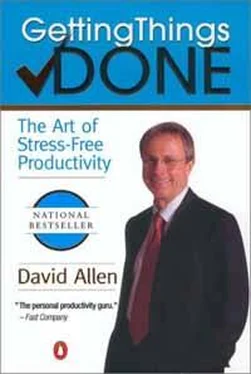Fanaticism consists of redoubling your efforts when you have forgotten your aim.
- George
I admit it: this is nothing but advanced common sense. To know and to be clear about the purpose of any activity are prime directives for clarity, creative-development, and cooperation. But it's common-sense that's not commonly practiced, simply because it's so easy-for us to create things, get caught up in the form of what we've-created, and let our connection with our real and primary intentions slip.
I know, based upon thousands of hours spent in many offices with many sophisticated people, that the "why?" question cannot be ignored. When people complain to me about having too many meetings, I have to ask, "What is the purpose of the meetings?" When they ask, "Who should I invite to the planning session?" I have to ask, "What's the purpose of the planning session?" Until we have the answer to my questions, there's no possible way to come up with an appropriate response to theirs.
The Value of Thinking About "Why"
Here are just some of the benefits of asking "why?":
• It defines success.
• It creates decision-making criteria.
• It aligns resources.
• It motivates.
• It clarifies focus.
• It expands options.
People love to win. If you're not totally clear about the purpose of what you're doing, you have no chance of winning.
Let's take a closer look at each of these in turn.
It defines success People are starved for "wins" these days. We-play games, and we like to win, or at least be in a position-where we could win. And if you're not totally clear-chance of winning. Purpose defines success. It's the primal reference point for any investment of time and energy, from deciding to run for elective office to designing a form.
Celebrate any progress. Don't wait to get perfect.
— Ann McGee Cooper
Ultimately you can't feel good about a staff meeting unless you know what the purpose of the meeting was. And if you want to sleep well, you'd better have a good answer when your board asks why you fired your V.P. of marketing or hired that hotshot M.B.A. as your new finance director. You won't really know whether or not your business plan is any good until you hold it up against the success criterion that you define by answering the question "Why do we need a business plan?"
It Creates Decision-Making Criteria How do you decide whether to spend the money for a five-color brochure or just go with a two-color? How do you know whether it's worth hiring a major Web design firm to handle your new Web site?
Often the only way to make a hard decision is to come back to the purpose.
It all comes down to purpose. Given what you're trying to accomplish, are these resource investments required, and if so, which ones? There's no way to know until the purpose is clarified.
It Aligns Resources How should we spend our staffing allocation in the corporate budget? How do we best use the cash flow right now to maximize our viability as a retailer over the next year? Should we spend more money on the luncheon or the speakers for the monthly association meeting?
In each case, the answer depends on what we're really trying to accomplish—the why.
It Motivates Let's face it: if there's no good reason to be doing something, it's not worth doing. I'm often stunned by how many people have forgotten why they're doing what they're doing — and by how quickly a simple question like "Why are you doing that?"can get them back on track.
It Clarifies Focus When you land on the real purpose for any-thing you're doing, it makes things clearer. Just taking two minutes and writing out your primary reason for doing something invariably creates an increased sharpness of vision, much like bringing a telescope into focus. Frequently, projects and situations that have begun to feel scattered and blurred grow clearer when someone brings it back home by asking, "What are we really trying to accomplish here?"
It Expands Options Paradoxically, even as purpose brings things-into pinpoint focus, it opens up creative thinking about wider-possibilities. When you really know the underlying-"why"—for the conference, for the staff party, for the elimination of the management position, or for the merger—it expands your thinking about how to make the desired result happen. When people write out their purpose for a project in my seminars, they often claim it's like a fresh breeze blowing through their mind, clarifying their vision of what they're doing.
If you're not sure why you're doing something, you can never do enough of it.
Is your purpose clear and specific enough? If you're truly experiencing the benefits of a purpose focus—motivation, clarity, decision-making criteria, alignment, and creativity—then your purpose probably is specific enough. But many "purpose statements" are too vague to produce such results. "To have a good department," for example, might be too broad a goal. After all, what constitutes a "good department"? Is it a group of people who are highly motivated, collaborating in healthy ways, and taking initiative? Or is it a department that comes in under budget? In other words, if you don't really know when you've met your purpose or when you're off track, you don't have a viable directive. The question "How will I know when this is off-purpose?" must have a clear answer.
Principles
Of equal value as prime criteria for driving and directing a project are the standards and values you hold. Although people seldom think about these consciously, they are always there. And if they are violated, the result will inevitably be unproductive distraction and stress.
A great way to think about what your principles are is to complete this sentence: "I would give others totally free rein to do this as long as they. . ."—what? What policies, stated or unstated, will apply to your group's activities? "As long as they stayed within budget"? "satisfied the client"? "ensured a healthy team"? "promoted a positive image"?
Simple, clear purpose and principles give rise to complex and intelligent behavior. Complex rules and regulations give rise to simple and stupid behavior.
— Dee
It can be a major source of stress when others-engage in or allow behavior that's outside your standards. If you never have to deal with this issue, you're-truly graced. If you do. some constructive conversation about and clarification of principles could align the energy and prevent unnecessary conflict. You may want to begin by asking yourself, "What behavior might undermine what I'm doing, and how can I prevent it?" That will give you a good starting point for defining your standards.
Another great reason for focusing on principles is the clarity and reference point they provide for positive conduct. How do you want or need to work with others on this project to ensure its success? You yourself are at your best when you're acting how?
Whereas purpose provides the juice and the direction, principles define the parameters of action and the criteria for excellence of behavior.
Vision/Outcome
In order most productively to access the conscious and unconscious resources available to you, you must have a clear picture in your mind of what success would look, sound, and feel like. Purpose and principles furnish the impetus and the monitoring, but vision provides the actual blueprint of the final result. This is the "what?" instead of the "why?" What will this project or situation really be like when it successfully appears in the world?
For example, graduates of your seminar are demonstrating consistently applied knowledge of the subject matter. Market share has increased 2 percent within the northeastern region over the last fiscal year. Your daughter is clear about your guidelines and support for her first semester in college.
Читать дальше











